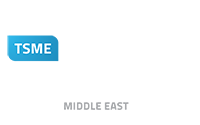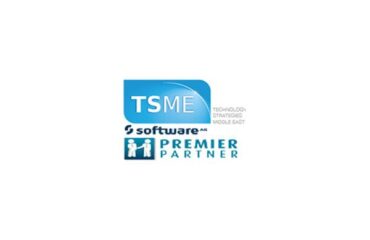
By: Heba Matouk, Marketing Manager, Business Development
Artificial Intelligence (AI) is undoubtedly transforming industries in this ever-changing era of modern technology, empowering intelligent operations driven by data-informed insights, strategic decision-making, and a robust competitive edge. Digital Marketing is not exempt from the unique transformation granted by AI to flourish into an essential part of any successful marketing strategy.
Digital Marketing is a big industry, it emerged over two decades ago to steadily skyrocket over the last few years in line with the rise of digital advancements from smartphones and social media channels to the development of big data. The industry is witnessing continuous growth, case in point, reports estimated the global digital advertising and marketing industry at USD350 billion in 2020 and is expected to lock at USD786.2 billion by 2026.
Modern technology, specifically AI, has created new realms of possibilities for how businesses connect with their audience. AI is transforming the digital marketing industry, empowering marketers to elevate their strategies to maintain a competitive edge for long-term success.
AI-Powered Marketing: Expand Your Reach
Unleashing the power of AI in digital marketing drastically empowered the industry, enabling it to experience a monumental shift and transform into more intelligent operations. Marketers started utilizing platforms and channels like smartphones, social media, and personalized content to promote products and services while expanding their reach. This, subsequently, contributed largely to the success of business strategies as AI granted new possibilities for businesses to move beyond the benefits of data analytics that offer valuable insights into customer behavior, preferences, and trends, jumping to innovative capabilities such as automation and creating personalized experiences.
The progress of digital marketing amid technological advancements has been steadily gaining power, from harnessing data-driven insights to automating processes. Following the emergence of AI, the digital marketing industry started utilizing smart tools to reach a wider audience and create marketing messages that are better targeted and better defined. For instance, marketers gained the ability to track customer behavior along with identifying top trends using big data.
Based on a survey that Semrush conducted, 64% of B2B marketers are viewing AI as an incredibly valuable tool in their marketing strategy. Over the last few years, it was made clear that integrating AI into operations enabled numerous features and advantages such as:
- Automate marketing tasks.
- Enhance targeting strategies.
- Harness data-driven insights.
- Improve tracking customer behavior.
- Make strategically informed decisions.
- Create personalized and engaging experiences for customers.
The outlined advantages are proof of the key role that AI plays in the digital marketing industry. AI-powered marketing tools have unlocked unimaginable capabilities for businesses looking to stay ahead of the curve and attain their strategic objectives and vision as they maintain a competitive advantage.
Traditional Marketing vs Digital Marketing
Referring to marketing activities that use offline channels to reach the audience, traditional marketing dates to the 19th century when successful marketing strategies included print advertising, newspaper advertising, and television and radio advertising. Traditional marketing is still used to this day, and it is recommended to keep a balanced investment in both old and modern ways.
Traditional (offline) marketing still accounts for around 56% of advertising revenue, marking a majority share, according to 2021 digital marketing statistics and facts issued by Oberlo. This is a testament to the significance that remains in traditional marketing and the benefits of its integration into modern marketing activities. It is important to highlight that when targeting the older generation, it is highly beneficial to utilize traditional channels as this audience is likely to seek offline channels rather than online networks. Traditional marketing comprises multiple channels:
- Handouts
- Direct Mail
- Event Marketing
- Broadcasting
- Billboards
- Print Ads
- Referral
On the other hand, digital marketing emerged to offer a multitude of advantages by unleashing the power of modern technology. Digital marketing covers multiple activities including search engine optimization (SEO), pay-per-click (PPC) ads, social media marketing, and email marketing. Online networks not only reach a large audience but also a targeted one through delivering personalized experiences and optimized campaigns.
Contemplating the key difference between offline and online marketing, digital marketing is more targeted, more measurable, and more cost-effective. Technology-driven marketing was seen over time to ensure that businesses obtain a global reach while delivering real-time interaction and engagement with customers. AI-powered marketing also supports marketers in analyzing large data to better create targeted marketing campaigns that are more precise and personalized. Conversely, businesses that rely on both marketing avenues and seek balance can have a better success rate for their marketing strategies.
How to Utilize AI in Digital Marketing
Leveraging the power of AI in digital marketing allows marketers to create strong campaigns that are efficient, targeted, personalized, and driven by rich data. Over the past years, intelligent tools were introduced into the market that empowered marketers to form a strategic approach that ensures greater results. Data Analysis tools, for example, supported the development of effective targeted campaigns by allowing the analysis of consumer data to identify several key components such as trends, preferences, and consumer behavior. Analysis tools such as predictive analysis have soared to hold a critical role in marketing to support optimizing marketing campaigns and collect comprehensive and necessary data.
Businesses were also able to boost user experiences by pursuing Personalization, a method to establish personalized content and recommendations in accordance with user behavior. User experiences have progressively improved since the rise of modern technology and AI, with businesses implementing Chatbots for immediate and easy access to customer support.
One key benefit of leveraging AI in marketing strategies is gaining the ability to drastically improve content. AI-driven technologies made it possible to present more engaging content using tools to analyze data generated from customer feedback, social media trends, and engine results pages (SERPs). AI can enhance content in various ways such as generating keywords, conducting full customer feedback analysis, and identifying the appropriate social media channels for the targeted audience.
The way to utilize AI in digital marketing is a bigger concept than expected, there are multiple possibilities and options to consider based on the business needs. Businesses can accomplish more than reaching a larger and more targeted audience. In this modern era, they can harness the ability to automate time-consuming tasks like lead generation, customer service, and marketing campaign management to consequently maintain their focus on more strategic tasks.
Recap,
Artificial Intelligence (AI) has paved the way for new realms of possibilities, and its influence in the Digital Marketing industry is only expected to grow further. From offline marketing to online marketing, the industry witnessed a drastic jump skyrocketing its success rates and unlocking powerful capabilities. Leveraging intelligent technology in operations ensured needed advantages such as the ability to make strategic and data-driven decisions as well as enhance customer experiences. AI has enabled marketers to achieve their core objectives: forming a connection with their targeted audience in meaningful ways. AI has redefined the digital marketing industry, making it easier to reach the audience, promote products and services, and add a personalized flavor to messages.
About the Author
Heba Matouk is the Marketing Manager, Business Development at Technology Strategies Middle East (TSME). She offers 21 years of professional experience in the marketing field, making her an industry specialist. With a talent for analyzing and defining marketing campaigns, Mrs. Heba ensures the delivery of engaging marketing strategies that successfully reach large, targeted audiences. She is an accomplished leader who created a powerful management career in the marketing industry to inspire, guide, and impact.



